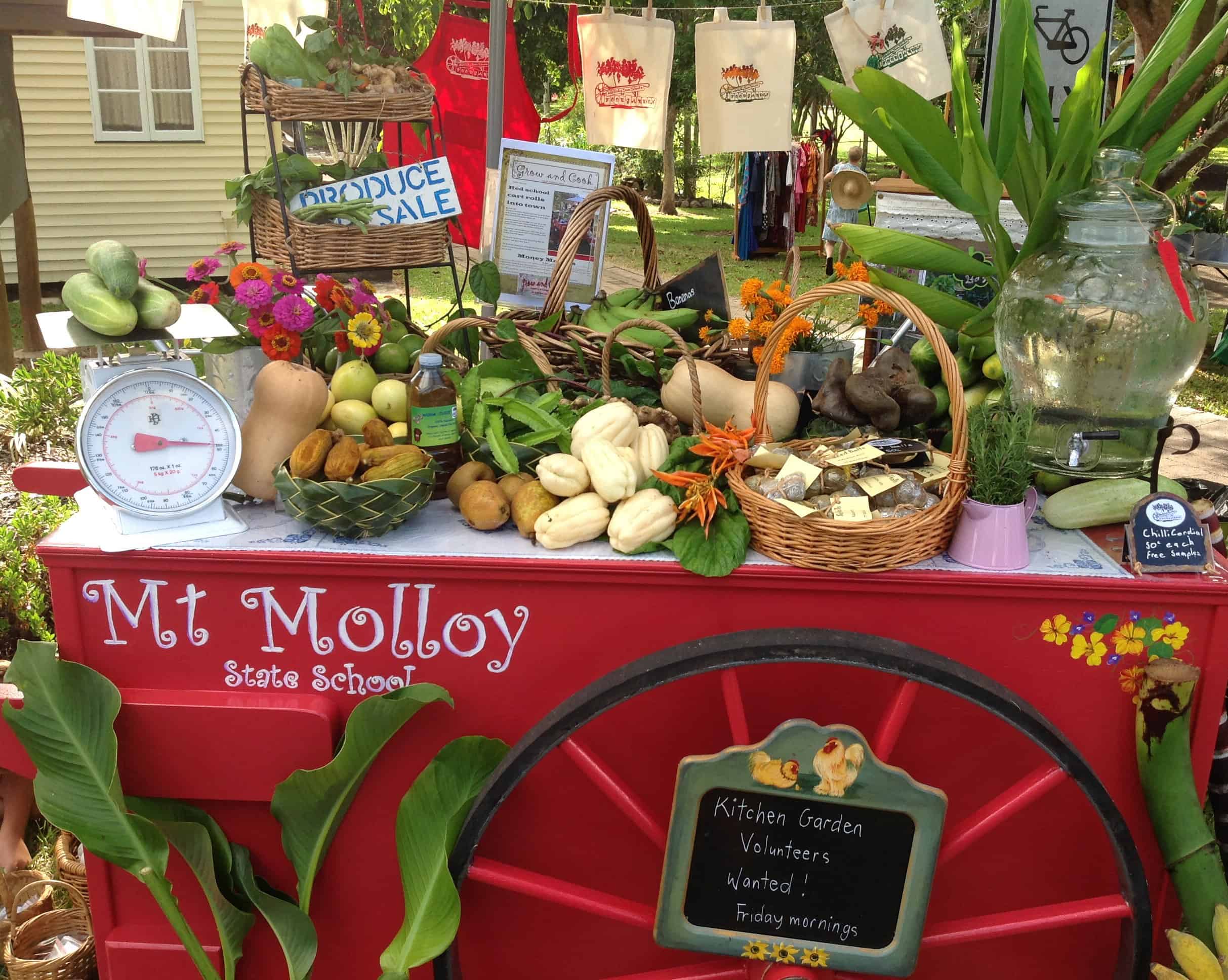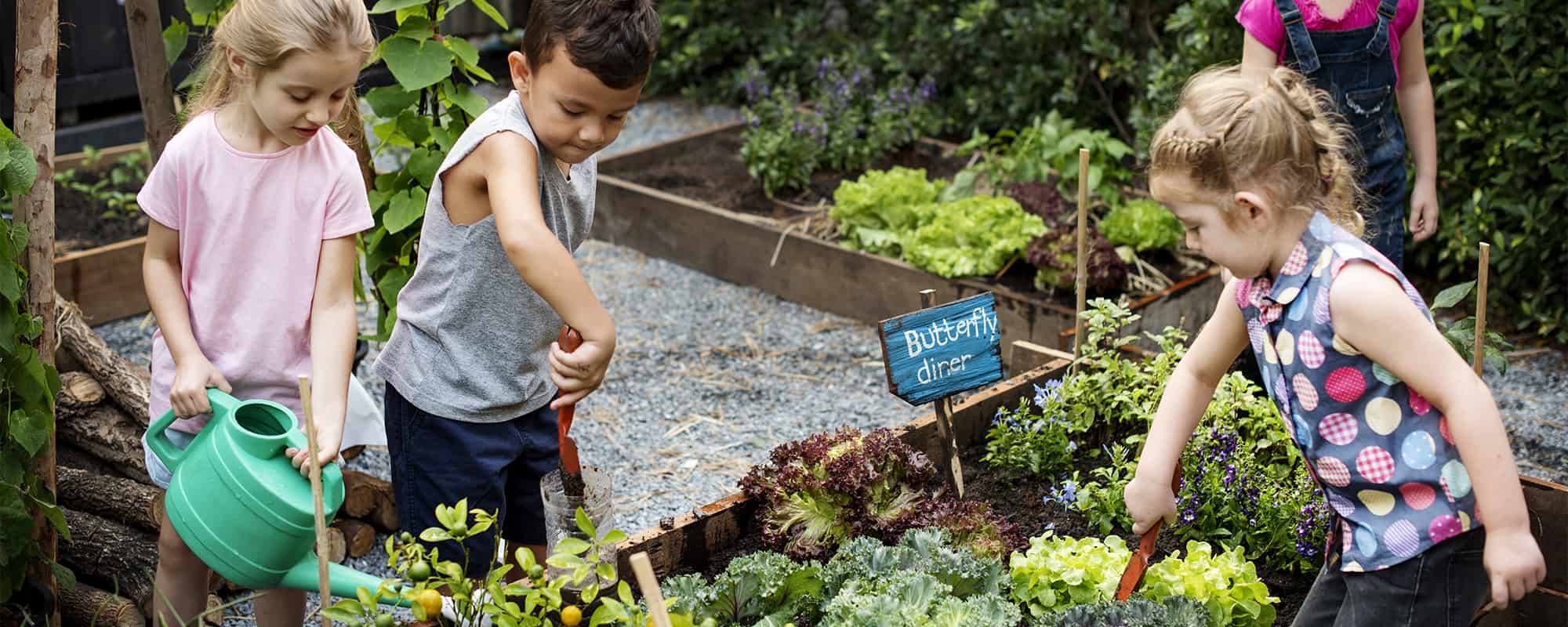Pleasurable Food Education With The Stephanie Alexander Kitchen Garden Program
Learning through hands-on activity is a sure-fire way of engaging children and young people, and is one of the winning attributes of the Stephanie Alexander Kitchen Garden Program.
Positive Food Habits for Life
Primary and secondary schools, as well as early childhood services across the country are using the Foundation’s Pleasurable Food Education model to teach children and young people how to grow, harvest, prepare and share fresh, seasonal, delicious food.
From sowing seeds in the garden and harvesting the produce, to cooking and sharing food together – children and young people learn valuable practical skills and positive food habits, as well as important life skills such as cooperation, sharing, critical thinking and leadership.
It’s also a beautiful way of building school pride and community, with many kitchen gardens becoming a hub for the broader community.
Learning Through Action
The benefits of a kitchen garden program are enormous, with countless opportunities to reinforce literacy, numeracy, and all areas of the curriculum, including cross-curriculum priorities. A kitchen garden program can facilitate learning and development approaches such as STEM, wellbeing programs and project-based learning.
The program opens up learning, offering alternate ways of engaging that have been proven to motivate disengaged learners, as well as work pathways.
“Each week after kitchen and garden classes, students undertake literacy and numeracy follow-up activities, such as writing procedural texts, writing narratives based in the kitchen or garden, identifying origins of food from around the world and drawing maps of the garden.” – Louisa Carey, Program Coordinator, Hallam Primary School, Victoria
Start Small and Grow
Starting a kitchen garden program does not require costly infrastructure. The Stephanie Alexander Kitchen Garden Foundation provides a program framework that is affordable, self-paced, easily accessible, and adaptable to any school environment, using the resources at hand. The Foundation team works with teachers and educators to provide support and guidance throughout their entire journey.
Visit www.kitchengardenfoundation.org.au or contact the team on support@kitchengardenfoundation.org.au or 13000 SAKGF (1300 072 543) to learn more.
What’s growing in the garden at Mt Molloy State School?
Growing, harvesting, preparing and sharing is at the heart of the Stephanie Alexander Kitchen Garden Program, and students at Mt Molloy State School shared with us what they have been enjoying in their kitchen garden sessions this term.

Late autumn and winter in northern Queensland is the perfect time for greens, and students have been harvesting winged beans, mustard greens, Ceylonese spinach and other various tropical spinaches, as well as beautiful aromatic parsley, basil and chives, to create mouth-watering stir fries.
Easy to grow and chock full of nutrients like vitamins A and C, potassium and folate, leafy greens can be used in so many ways: as an accompaniment to meat and other vegetables, in spanakopita (spinach and feta pie), or in soups and salads. To try them in a stir-fry see the Kitchen Garden Foundation’s Chinese Greens Stir-Fried with Soy Sauce and Ginger Recipe
Pasta is another year-round favourite, with the smallest of children able to mix, knead, roll and shape. Mt Molloy State School reports that much fun is had in the kitchen on pasta-making days, and that classroom follow ups are abundant, with students from Prep to Year 3 transferring their experiences into English classes, creating wonderfully descriptive texts on pasta.
Pumpkins have also been in abundance in the garden at Mt Molloy and these are one of the easiest-growing veggies around. The pumpkin vines do need a bit of space to ramble, but if you plant them near the edge, you can train the vines and allow space for other veggies, such as beans and spinach which they grow well with. They are a satisfying crop and at Mt Molloy, the students have used their harvest to perfect the school’s signature Roasted Pumpkin and Feta Pizza with fresh rosemary, in preparation for the opening of the students’ own Pumpin’ Pizzas Restaurant.
To find out more about The Stephanie Alexander Kitchen Garden Foundation and how to engage young people in growing and cooking with fresh vegetables, tune into Episode 112 of the PakMag Parents Podcast with the Foundation’s CEO Josephene Duffy joining Bree.





